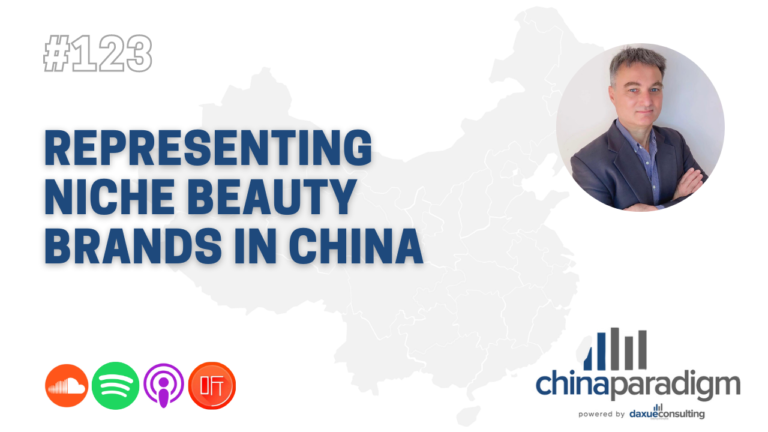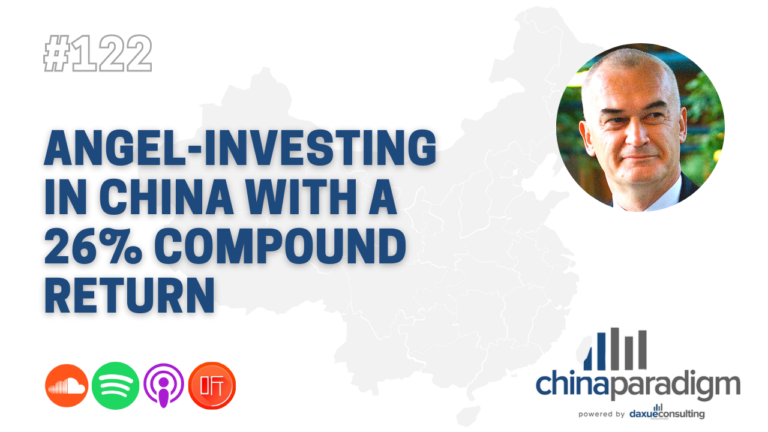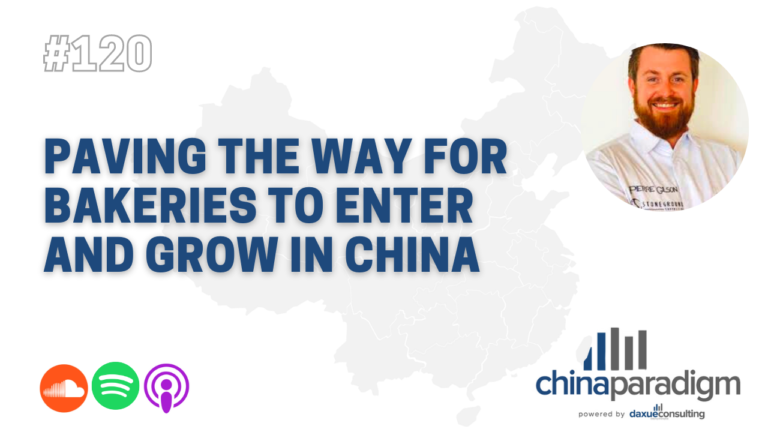China Paradigm interviewed Carlo Dragonetti, head of digital and communication at The Italian Trade Agency, to learn more about how to promote Italian brands in China, the reputation of Made in Italy and the surprising story of Carlo as a foreign KOL in China.
Carlo Dragonetti, an entrepreneur in China and Italy ambassador on TMall Global
Carlo Dragonetti’s story with China is quite unusual. Arriving in China to study Chinese he had begun to learn in Italy, Carlo fell in love with the culture and language and wanted to continue his studies in Shanghai, thanks to scholarships from the Chinese government.
Carlo Dragonetti became famous in the country thanks to the graduation speech he gave in Chinese to 8,000 students. In this speech, he makes fun, with elegance, of the benefits of hot water in China. A friend posted this video on her Weibo account, followed by millions of Chinese, and the video became viral very quickly. This is how Carlo Dragonetti became a foreign KOL in China and discovered this world of influence. He was approached by many media at that time, Italian, Chinese, but also from all over the world and began to understand that he could leverage these subscribers wisely.

Today he works for the Italian Trade Agency, particularly on KOL marketing campaigns to promote Italian brands in China. That’s how he became an Italian ambassador on Tmall Global.
“The most interesting part of having had the chance to be famous for a long while has been that I had the chance to get in contact with important people in the sector in China and Italy.”
He is therefore in charge of e-commerce and online communications for this company, which is a governmental agency that supports the business development of Italian brands in China and abroad and promotes the attraction of foreign investment in Italy. The agency does support Made in Italy, organizing promotional activities such as roadshow for a Chinese company to Italy or organizing groups of Italian companies in China.
How to promote Italian brands in China through e-commerce?
For the online promotion of Italian brands in China, the Italian Trade Agency uses the brand hub, Alibaba’s marketing tool. This is a platform that focuses not on sales, but on content. It means that it is a question of communication and values and not only revenue.
« We decided to come up with the Brand Hub because the Italian Trade Agency cannot sell products. So, we couldn’t have created a platform – let’s say, a page on Alibaba under our name to sell Italian products. »
So they decided to invest in this virtual hub on Tmall Global, which is called HelloITA. HelloITA has more than 100 Italian brands in China in different categories, from lifestyle to Italian food in China to fashion.

This tool helps them to organize communication campaigns based on content, working with Alimama, which is a company from Alibaba that sells all the advertisements. Today HelloITA has 70,000 followers and more than 20 million impressions.
The biggest challenge in working with a brand hub on Tmall to promote Italian brands in China is to measure the campaign’s success because it’s mostly communication and not marketing. Indeed, they are trying to spread Italy’s values in China without appearing condescending or superior.
« We are trying to make it clear that if the Chinese want to buy Italian, they can have a whole pavilion where of where to find a lot of Italian products, of high quality and certified. »
The success of Italian food in China
Carlo Dragonetti explained how they promote Italian food in China and the importance of offline communication. The ITA works with Hema, which is an Alibaba New Retail supermarket chain.
Thanks to their collaboration with Hema, their Italian brands in China are not only present on supermarket shelves but also create real events. They invite Italian chefs who organize impressive cuisine shows and KOLs to talk about Italian food in China. The challenge is to merge online and offline communication to get a bigger impact.
« No matter you scan QR codes to become a follower, but you have to think of a promotion that can be brought together online and offline to get the best out of it. »
The second important thing when promoting Italian food in China is to convey the country’s identity with powerful products. In addition to Italian pasta and pizza, the ITA also tries to promote other Italian products of very high quality such as balsamic vinegar or Made in Italy milk. What can be difficult is to find the right balance between what the Chinese think of Italian food and what Italian food really is.
« Pineapple pizza is always a big deal between Italians and international friends. That is just an example to say that you have to fight what sounds Italian and what is Italian. »
Finally, they also work with Slow Food, which is a cooking association with strong values of fair and healthy food. Their collaboration consists of organizing activities and workshops to teach cooking enthusiasts in China how to recognize and use qualitative Italian ingredients and how to perfectly mix Chinese and Italian food.
Listen to this episode here:










